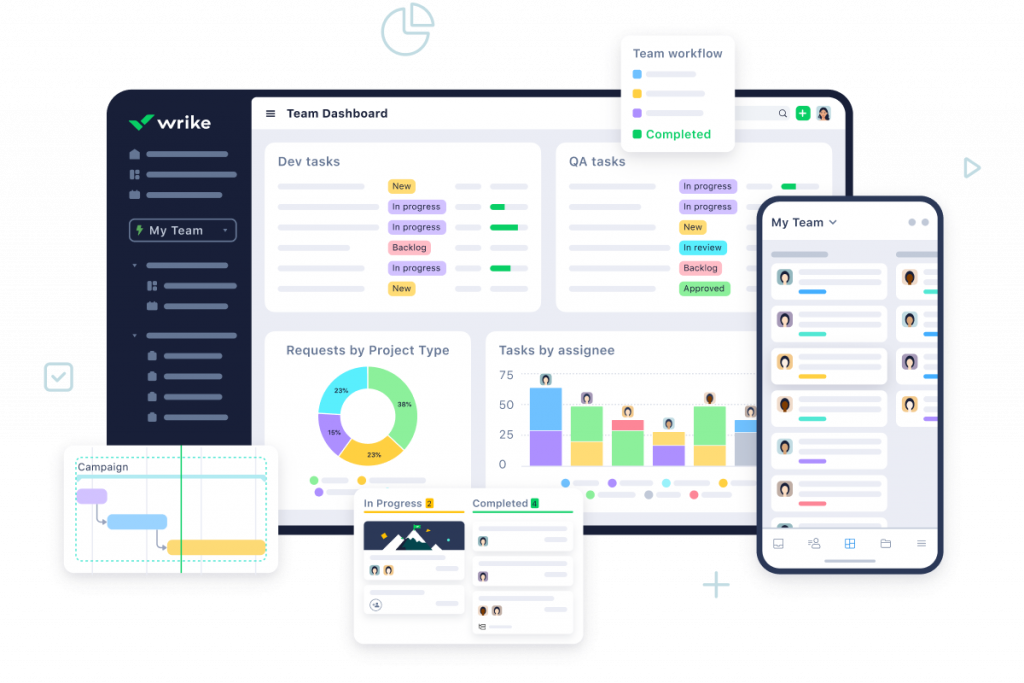In the fast-paced realm of software development, effective software project management is paramount to ensure the successful delivery of high-quality products within stipulated timelines. However, software project management tools have emerged as indispensable assets for software development companies, streamlining workflows, enhancing collaboration, and providing comprehensive oversight throughout the development lifecycle.
In fact, these tools serve as the compass guiding development teams through the intricacies of planning, execution, and monitoring, ultimately contributing to the overall success of projects.

Importance of Software Project Management Tools in Software Development
Software project management tools are pivotal in software development companies by providing a centralized platform for planning, organizing, and controlling project activities.
Moreover, they facilitate collaboration among team members, enable efficient resource allocation, and help mitigate risks. These tools also enhance communication, ensuring all stakeholders are on the same page and improving transparency and accountability.
Ultimately, Software project management tools empower teams to deliver high-quality software solutions on time and within budget.
Now, let’s delve into five of the most popular software project management tools:
Jira
At the forefront of software project management tools is Jira, a versatile and robust solution widely used in software development. Developed by Atlassian, Jira offers a comprehensive suite of features. It includes agile project management, issue tracking, customizable workflows, as well as seamless integration with other development tools. With Jira, teams can effectively plan sprints, track progress, and manage backlogs, fostering collaboration and ensuring that development stays aligned with business objectives.
Trello
Trello stands out for its simplicity and visual appeal, making it a favorite among teams seeking an intuitive software project management solution. Employing a card-based system, Trello allows teams to create boards, lists, and cards to represent tasks and workflows. In addition, it fosters transparency by providing a clear visual overview of project progress. Trello’s flexibility, ease of use, and integration capabilities make it ideal for smaller teams or projects with less complex requirements.
Asana
Asana is a versatile software project management tool that caters to a broad spectrum of industries, including software development. Its user-friendly interface and powerful features make it a go-to choice for teams looking to streamline their workflows. Asana facilitates task management, project planning, and collaboration through features such as timelines, kanban boards, and customizable project views. Moreover, integration with various third-party tools ensures seamless communication across the entire development ecosystem.
GitLab
For teams deeply embedded in the world of version control and DevOps, GitLab emerges as an all-encompassing solution. Not only does GitLab provide robust version control capabilities, but it also integrates project management features seamlessly. From source code management and CI/CD pipelines to issue tracking and code review, GitLab unifies development processes. Therefore, it enables teams to manage their projects efficiently within a single platform.
Microsoft Azure DevOps
Tailored for organizations utilizing Microsoft technologies, Azure DevOps provides an end-to-end project and application lifecycle management solution. Offering features such as work item tracking, version control, and continuous integration, Azure DevOps integrates seamlessly with popular development tools like Visual Studio. Its comprehensive services ensure development teams can plan, collaborate, and deliver software solutions with agility and precision.
Who Can Use Project Management Tool?
Project management tools are versatile platforms that can benefit a wide range of individuals and teams across various industries. Here’s a breakdown of who can benefit from using project management tools:
Project Managers
Project managers are the primary users of project management tools. These tools provide them with a centralized platform to plan, organize, and oversee all aspects of a project. Moreover, project managers can use these tools to create timelines, allocate resources, and track progress. In fact, it ensures the project stays on schedule and within budget.
Development Teams
Software developers, programmers, and other members of development teams can use project management tools to collaborate on coding tasks, manage workflows, and track the status of coding projects. These tools often integrate with version control systems and other development tools, providing a seamless environment for coding and collaboration.
Product Managers
Product managers use project management tools to define and communicate the product roadmap, prioritize features, and coordinate the efforts of various teams involved in product development. These tools help product managers ensure that the development aligns with the overall product strategy and meets market demands.
Marketing Teams
Marketing teams can leverage project management tools to plan and execute marketing campaigns, track deliverables, and manage content creation. Additionally, these tools facilitate collaboration among team members. It ensures that deadlines are met and provides visibility into the progress of marketing initiatives.
Sales Teams
Sales teams can benefit from project management tools to coordinate sales activities, track leads and opportunities, and manage the sales pipeline. These tools can also enhance communication between sales representatives as well as help teams stay organized in their efforts to meet sales targets.
Conclusion
In the dynamic landscape of software development, choosing the right project management tool is a critical decision. The right software project management tool can significantly impact project success by monitoring and tracking progress effectively. Each of the aforementioned tools brings unique strengths to the table, catering to different preferences, team sizes, and project complexities. By leveraging these tools, software development companies can navigate the complexities of project management. It enhances collaboration and ultimately delivers high-quality software solutions efficiently.



